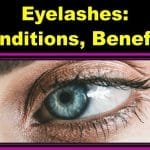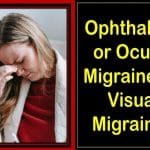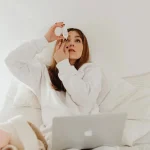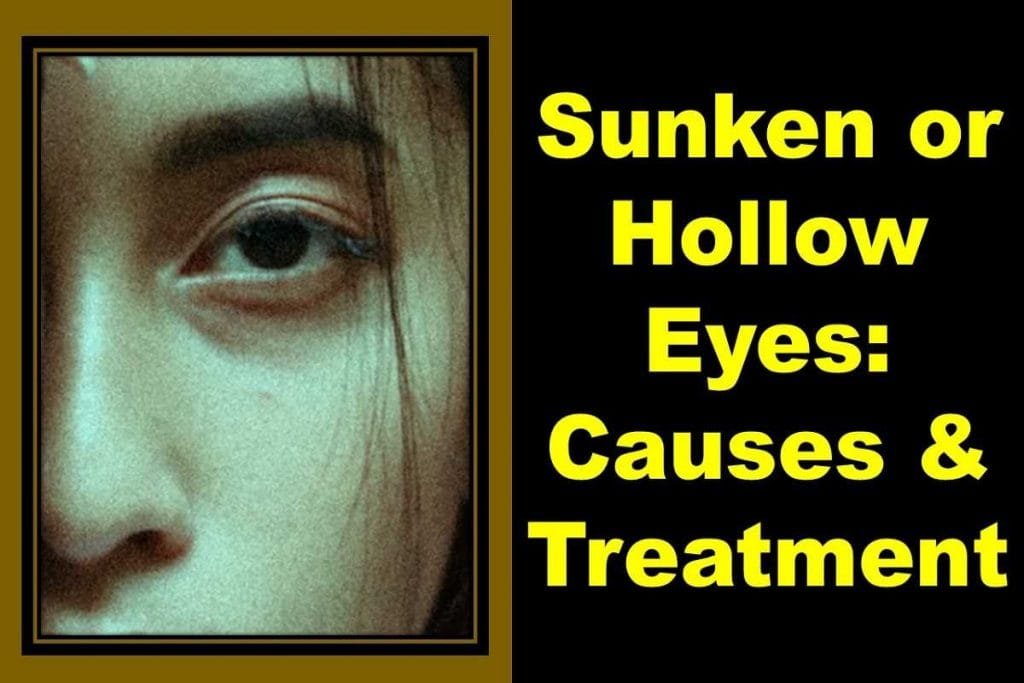The most common symptom of itchy eyelids is itchiness or scratchiness at the edges of the eye near the eyebrows or at the top of the nose. The itch may be worse in certain environments such as in air conditioning or when reading in low light conditions.
Why Is My Eyelid Itchy?
Eyelid itching is a common eyelid condition that can be caused by many different factors like allergies, dry eye, or even a reaction to certain cosmetics. Itchy eyelids are a common cause of eye irritation.
Some people with dry eyes may experience an itchy eyelid because dry eyes can make your eyelids more sensitive to irritants and allergens.
Some other causes of eyelid itching include allergic reactions, contact lens irritation, rosacea, and eczema.
The best solution for this problem is prevention. If you know what’s causing your eyelid itching then you should try to avoid it as much as possible in order to stop the irritation from happening again in the future.
It’s important to see your eye doctor if you’re experiencing an itchy eyelid because there are many possible causes that require different treatments.
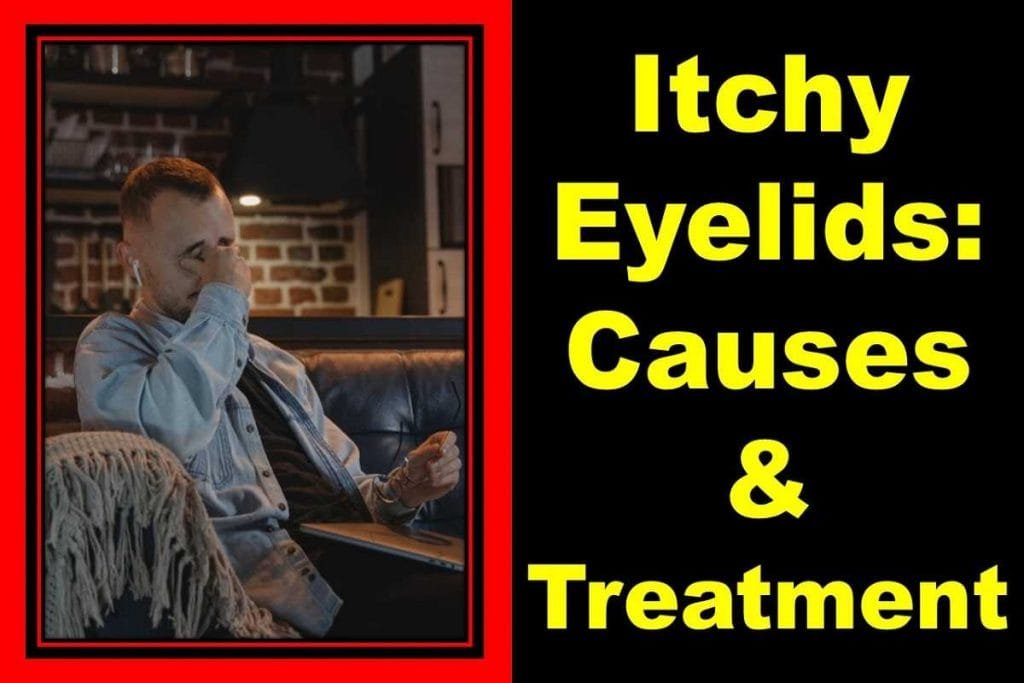
Itchy Eyelids Causes
Itchy eyelids are a common complaint and can be caused by a variety of factors. While itchy eyelids are usually not serious, it is important to identify the cause so that appropriate treatment can be initiated.
There are several possible reasons for itchy eyelids. Some of the common causes of itching eyelids and their treatment regime are mentioned below.
Blepharitis
Blepharitis is a common infection caused by a build-up of bacteria on the eyelid. Allergies or skin conditions like rosacea and dandruff can also lead to blepharitis.
Blepharitis can lead to red, itchy eyelids and unpleasant crusting at the base of your eyelashes. It can also cause dry eyes which in turn causes blurred vision.
Blepharitis is an infection of the eyelids, typically in both eyes simultaneously. There are 2 types:
- Anterior blepharitis is an infection or inflammation on the edge of your eyelid where eyelashes grow as a result of close contact with infected eye secretions
- Posterior blepharitis affects the inner edge of your eyelid where your eyeball contacts the lid
Some cases of blepharitis can be treated on your own at home. In other cases, it is best to see the doctor.
Treatment for blepharitis
- Keep the area around the eyes clean and use artificial tears for hydration.
- Place a warm compress over the eye and tighten eye lid to loosen crusty surface material.
- If needed, your doctor might prescribe antibiotics.
Seasonal Allergies and Other Eye Allergies
If you’re allergic to seasonal allergies- you know how they can make your eyelids itchy. Pollens, cat or dog dander, and dust mites can all affect eyelid areas and make them itchy.
Other irritants, such as chlorine that are used in the swimming pool, can make itchy eyelids, and watery eyes. You might also notice that there are swollen lids and the eyes are red.
If you suffer from eye allergies, there is good news; they are mostly manageable. You should address and treat your allergy so that irritating reactions don’t happen in the future.
You need to follow these recommendations to get rid of eye allergies.
- You should avoid irritants, pollutants, and allergens whenever you can.
- Rinsing your eyes with artificial tears can prevent eye irritation.
- Over-the-counter allergy medicines can help relieve you from and manage the symptoms of allergies.
- Consider seeing an allergist for persistent itchy eyelids and still not feeling better with treatment.
Allergic Reaction
Eyelid dermatitis can occur in one or both eyes as a result of an allergic reaction. It is an irritating condition in which there is swelling, redness, scaly skin, and itchy eyelids.
It’s possible to have an allergic reaction to the ingredients found in many regular household products. These include things that you wear on, near, or in your eyes like makeup, contacts solution, glaucoma eyedrop, and shampoo, along with food items.
For minor allergic reactions, treatment and management may be done at home. However, if the reaction is not getting better or it’s getting worse, contact a doctor as soon as possible.
Serious allergic reactions can cause swollen and itchy eyelids, face, mouth, or tongue. If you are experiencing any of these symptoms, get to a doctor’s clinic right away.
You can follow these recommendations in case of eyelid itching caused by an allergic reaction.
- If you experience any negative symptoms when using cosmetics or medication, try to stop using them and visit your doctor. They may be causing an allergic reaction.
- Use over-the control antihistamine to temporarily relieve symptoms.
- If you have just applied eye makeup or have allergy-related itching, a cool compress can make the uncomfortable feeling go away.
- Seek emergency and medical attention if symptoms are severe.
Conjunctivitis (Pink Eye)
Also known as pink eye, conjunctivitis is a highly contagious eye infection that can occur in one or both eyes. It can be caused by a virus, bacteria, allergies, and other irritants. Pink eye usually causes itching, redness, swelling, and even a gritty feel when blinking.
Having conjunctivitis is uncomfortable and stressful, but it often resolves without treatment. In severe cases, though, it may be necessary to add treatment methods so as to avoid further complications.
Following treatments are recommended for the effective management of pink eye.
- A viral or allergic conjunctivitis can be treated at home with a cold compress and artificial tears. More severe symptoms may be treated using an antibiotic eye ointment and/or oral antihistamine.
- Opt to talk to your doctor about the pros of using medications and whether they can help you manage and prevent allergic conjunctivitis.
- Avoid sharing towels and bed sheets in order to prevent spreading of the conjunctivitis
- You may have antibiotic or anti-inflammatory eye drops prescribed by an ophthalmologist, which can help with the itchy eyelids.
Dry Eyes
A dry eye is an eye condition in which your eyes might not produce enough tears to keep them lubricated. This can lead to eyelid itchiness or other problems since your eyes might not be clean. Low tear production could also lead to an accumulation of foreign matter on the cornea which can worsen any existing eye problem.
Treatment of the cause of the dryness of the eye is necessary to effectively manage the problem of dry eyes. Over-the-counter lubricating eye drops are of great help if you have dry eyes.
Stye or Hordeolum
Styes can be painful but are harmless. They’re often small, red bumps that develop on the edge of your eyelid or near your lash line. The bumps are typically hard and you may see pus or a yellow discharge from them.
Eye styes are caused by an infection (typically staphylococci bacteria) in a hair follicle and can cause redness, swelling, or pain.
Styes may open within a few days and then start to heal on their own. You should keep the area clean, but usually don’t need any other treatment
Follow the given suggestions to manage stye.
- maintain eyelid hygiene
- avoid squeezing the stye
- warm compress the affected eyelid several times per day to facilitate the drainage of pus from the stye
- if this stye in your eye doesn’t go away within a week, see an eye doctor
Phthriasis palpebrarum
A phthiriasis palpebrarum is a rare eye condition that usually happens due to lice (Phthiriasis pubis, commonly known as crab lice) infestation on the eyelid (most commonly seen in the pubic region and other parts of the body). This type of infection may mimic blepharitis.
Eyelid itching is a prominent symptom of a phthiriasis palpebrarum. Maintain good eyelid hygiene to get rid of this eyelid lice infestation.
Insect Bite
Insect bites can cause a lot of irritation, especially when your eyes are affected. They can also result in an itchy eyelid. It’s important to take care of it since your eyes and the surrounding areas are so delicate.
Minor injuries will heal with a bit of time, but don’t forget to take care of any additional symptoms or signs of swelling. When it comes to more serious problems, see a doctor for their analysis and advice to ensure you prevent infections and other serious illnesses.
To relieve the itchy eyelid and eyelid pain of insect bites simply rinse it with a saline solution and toughen up a cold compress on the area. If you have been stung by bees, wasps, or hornets, seek immediate medical attention because they may require treatment and/or removing their stinger to stop further harm.
Symptoms of Eyelid Itching
Other than localized or entire eyelid itchy or scratchy sensation, there are several eye symptoms in mild to severe form of eye conditions for itchy eyelids.
- sudden blurry vision
- eyelid pain and swelling
- discharge of oily or sticky fluids
- redness
- rough and scaly skin
- grittiness, burning sensation
- extreme sensitivity to light
Home Remedies for Itchy Eyelids
There are a number of things you can try at home to manage your itching eyelids. These include:
Anti-allergic eye drops
Over-the-counter allergy eye drops should work by reducing histamine in your eyes because they bring relief to people with this condition. You might want to give them a try by themselves and add an oral antihistamine too
Maintaining Eyelid Hygiene
Cleansing your eyelids with diluted baby shampoo or eyelid cleaner is beneficial in most cases, so long as you avoid using harsh soap if you have sensitive skin. Gentle eyelid massage with a cloth helps to reduce the problem of blepharitis by preventing the accumulation of oil in the eyelid glands.
Mild Hydrocortisone creams
Some hydrocortisone creams in their mild concentrations (0.5 to 1%) may help relieve eyelid itching caused by eyelid dermatitis as long as you avoid stronger products that can thin the skin.
Applying warm Compression
If you have a stye or any kind of eye infection, using warm compresses can create a soothing effect on your eyes and reduce the itchy sensation, pain, and discomfort. The best thing about them is that their warming properties help fight the infection while being totally safe.
Warm compresses can help clear up the eyelid margins caused by blepharitis. Applying a warm compress can encourage fluid to circulate and aid with any discharge that’s built up.
Lubricating Eye Drops
To reduce eyelid itchiness caused by conjunctivitis and dry eye syndrome, over-the-counter lubricating eye drops and antibiotic eye drops are also effective.
Moisturize the Eyelid
For soothing, nourishing eyelid skin in dermatitis, consider using an unscented moisturizer.
When to See an Eye Doctor for Itchy Eyelids?
If you have itchy eyelids, you should try out some home treatments. These can be effective to ease the symptoms within a few days and if not, you should see a doctor as soon as possible. Be sure to also see your doctor if this has been going on for longer than one week or if your itching is uncontrollable or making you feel anxious
It’s time for a doctor’s visit if you’re experiencing eyelid itching accompanied by other symptoms like:
- Pain in and around the eye
- Sudden blurred vision
- Dry, rough, scaly eyelid skins
- Eyelid swelling with or without pain
- Redness in the eyelid or other parts of the eye
To pinpoint the exact causative factor of eyelid itching, your doctor may have you identify the things that might be triggering it. They could be allergens in the products you use or parts of your environment.
You could also be given a test to see what substances you’re allergic to. For example, the patch-test would introduce possible irritants to your skin and see which ones provoke a reaction.
One sign that your doctor may look for is signs of infection. If they suspect blepharitis, they may do a swab test underneath your upper eyelid to find out. This involves removing any scabs and oil from the surface of the eyelid to test them for allergens and germs that could be causing inflammation.
Your doctor may prescribe an antibiotic eye drop in the case of bacterial conjunctivitis.
Takeaway
There is a wide range of causes of itchy eyelids, which can often be treated with remedies available at home. Dryness, allergens, and irritants in the environment are known to cause itchy eyelids and irritation.
Sometimes, people experience excessive eyelid itching that leads to unusual symptoms, like swelling around the eyes or pain or discharge. It is best to see a doctor for diagnosis when these symptoms are severe.
Sources
- https://www.ncbi.nlm.nih.gov/books/NBK459226/
- https://my.clevelandclinic.org/health/diseases/17658-stye
YOU MAY ALSO LIKE
Why Is My Eyelid Twitching? Eyelid Spasms Causes
Swollen Eyelids & Eyelid Bump: Causes, Treatment, & More
White Part of Eye Swollen Like Jelly: Chemosis of Eye
